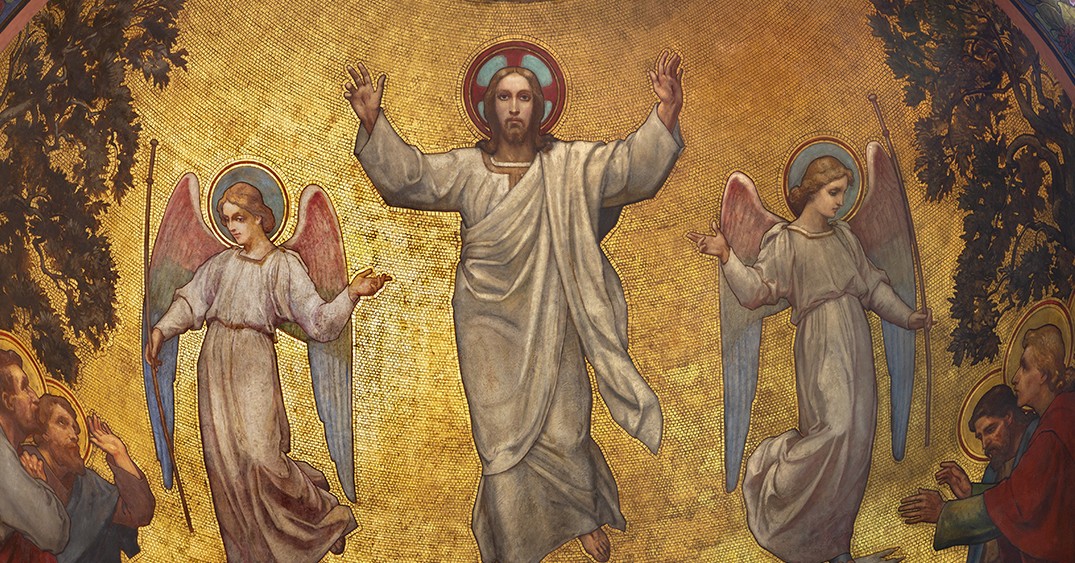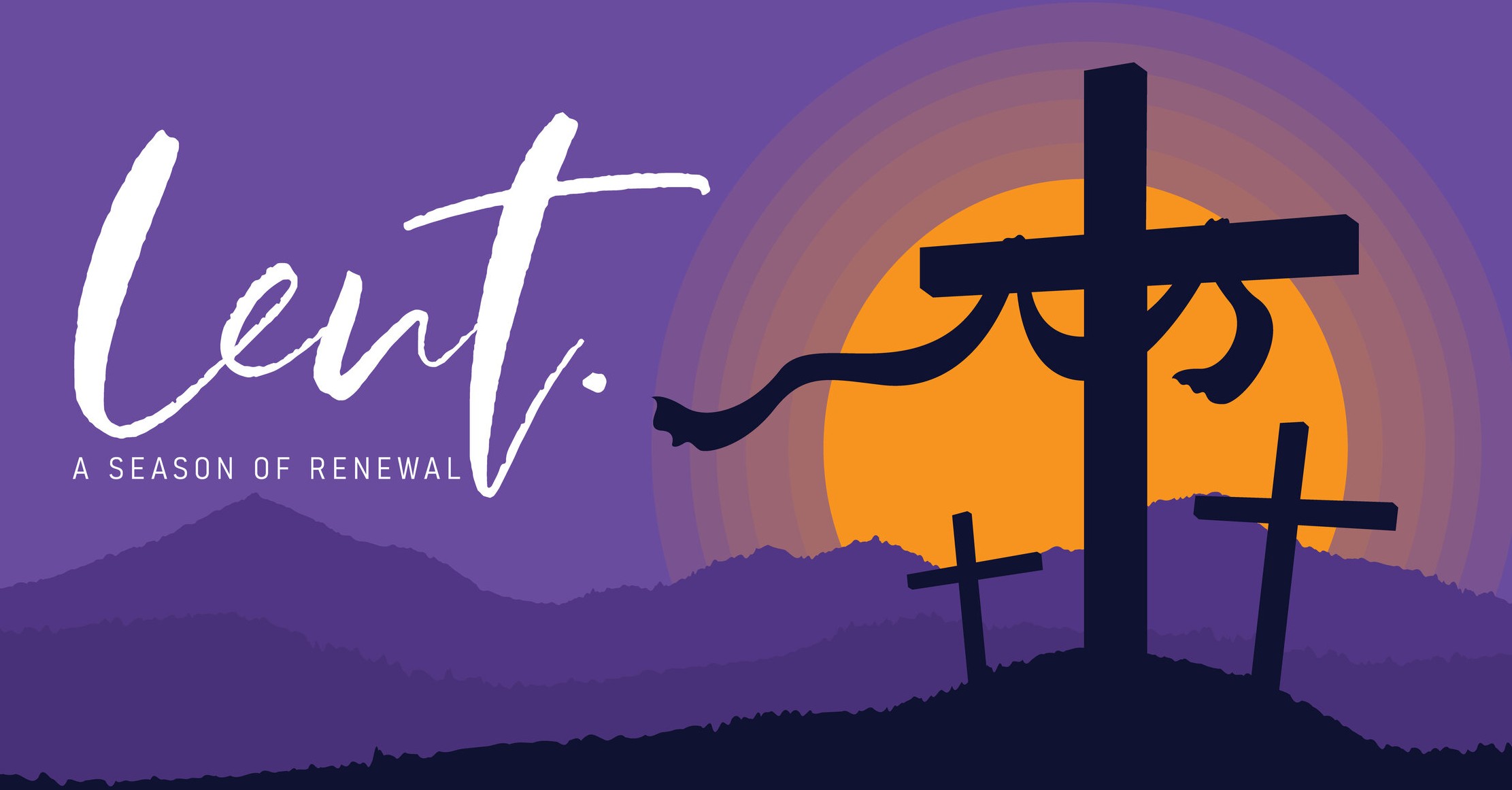Ash Wednesday, 2 March 2022
There are times when God touches the water, so to speak, and encourages us to change, because He wants to do something in our lives. The season of Lent touches the heart in a deeper way. It’s also a preparation for Easter, so that after forty days we can proclaim the life of Christ: It’s only when we’re prepared that we’ll see a transformation in our lives when we receive the message of Easter.

Worship from the heart
Worship involves rituals. There are many rituals in the Old Testament; as Christians, we make the sign of the cross, kneel, bow, and receive the imposition of ashes. A sign of repentance is to wear sackcloth, which is very rough on the skin, instead of comfortable clothes. These are all outward. However, God said He was not satisfied with Israel’s sacrifices. It wasn’t that they should not bring Him sacrifices, but something was missing – like tinola without chicken or ginger. There’s nothing wrong with outward signs, but the heart should not be absent – they should be done from the heart. What is important to God is not the ritual, but your heart. With giving, it’s not the money or the amount that’s important to God, but that you trust in Him.
In today’s Gospel, Jesus was not embarrassed, but audacious in calling out the “righteousness” of the religious leaders as an outward exhibition, devoid of sincerity and true devotion. Religion, if it’s only for the appearance, is no good. It’s good to have a heritage of the Christian faith, but it must be from the heart in order to transform our lives.
Dietrich Bonhoeffer said,
“[Disciples] should keep on following Jesus, and should keep looking forward to Him who is going before them, but not at themselves and what they are doing.”
We need to keep on looking at Jesus, rather than looking at one another and at ourselves.
Sometimes people tell me, “The service was very good”; and when they don’t say anything, I know it was not good. But how do you distinguish whether the worship was excellent or not? Was it because the preacher had a new haircut or put on make-up? You will know when you lost track of time because you were caught up in God’s presence. Peter, John, and James said, “Why don’t we stay here?” You can call your employer and say, “This service is so great. I’m not working today – I’m going to stay at church.” It’s not because it entertains you, but you’re so engrossed in what God is saying, and you sense His presence so much that you don’t want to leave. You say, “Lord, what are You saying to me? I want to meet You in the Eucharist and receive You in my heart – that’s what’s important to me. I don’t care about people calling and what they’re saying on Facebook. What’s important right now is what You’re saying, so that I might obey You, and to receive You in the Eucharist.”
The foundation of faith and devotion
The foundation of Christian devotion is comprised of prayer, fasting, and acts of mercy. As a building is supported by pillars, faith must be sustained and have a foundation. The Church Father Peter Chrysologus said,
“Prayer knocks, fasting obtains, and mercy receives.”
These cannot be separated from each other, but give life to each other. You cannot pray without fasting; you cannot fast without extending mercy to someone else.
“Fasting is the soul of prayer…”
(When a person dies physically, the soul leaves the body and the body falls like a piece of clothing on the ground.)
“…mercy is the lifeblood of fasting. If you learn to pray, learn how to fast also; if you fast, then learn also how to show mercy.”
We are mobilising our diocese to donate to Ukraine. I was thinking of clothes; but ours would be too short, except for their children. We’re looking for organisations that are working on the ground, and we will take a special offering. They’re our Christian brothers and sisters – even if they’re not, they’re in need, so we should help them. At some point we may also be in need. The Philippines was involved in World War II, and some people helped.
“If you want God to know that you are hungry, know the hunger of others. If you want to receive mercy, give mercy.”
What is fasting? Is it keto diet, Atkins diet, or intermittent fasting? Among the many Hebrew festivals, the Day of Atonement is unique; it’s the holiest day of Israel’s year. The High Priest enters the holy of holies, which only happens once a year, and offers a sacrifice for the sins of all people. It’s a time to be humble before the Lord, and to fast. Fasting has to do with humility and giving oneself to God. It’s not trying to lose weight because of high cholesterol, or to reduce your uric acid. Fasting may have physical benefits, but it is to humble oneself before God, and to understand who we are: We came from dust, and to dust we will return. It is offering oneself to God. Isaiah said fasting must be coupled with acts of mercy. Instead of the money you would have used to eat, share something with those who are hungry. Some of you saved money during the pandemic, because you could not go out to buy food; but afterwards it was gone quickly.
Giving our lives back to God
Once I asked the Lord why we need an altar call ever Sunday – is it for the same people to give their life to Jesus when they already did so the previous week? People give their life to God during the Mass; but when they go out, they take it back. The next Sunday, they have to give it back again. As Christians, we give many things to God, but sometimes we take back some things and say, “Lord, this is mine.” We need to be reminded of those things, and understand that repentance leads to restoration. We give our lives to God, and let Him examine us. In areas that we have taken things back for ourselves, or have missed God, we acknowledge it, and give it back to Him, and say, “Lord, do as You please”.
Several years ago I was on Facebook (I’m not saying that using Facebook is bad). In Lent, I asked the Lord what He wanted me to fast from. Have you noticed that on your birthday, every few minutes you check how many people have greeted you? Before Lent it had made me crazy, and I sensed the Lord telling me to give up Facebook. Over the next few days, I went through “cold turkey”; but after Lent and Easter, I never had a desire to go back to it. That’s a personal example – for you it might be different. Is there something with which you’ve been struggling, that you cannot control? That might be something you need to give to God. Try it, and you’ll be free from it after Lent.









